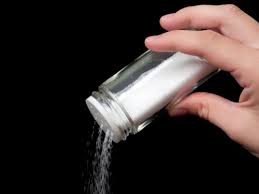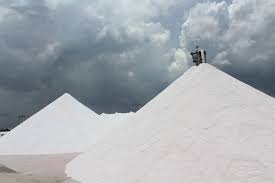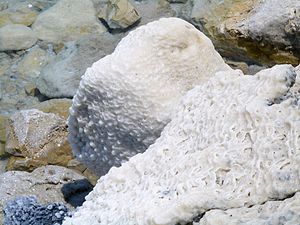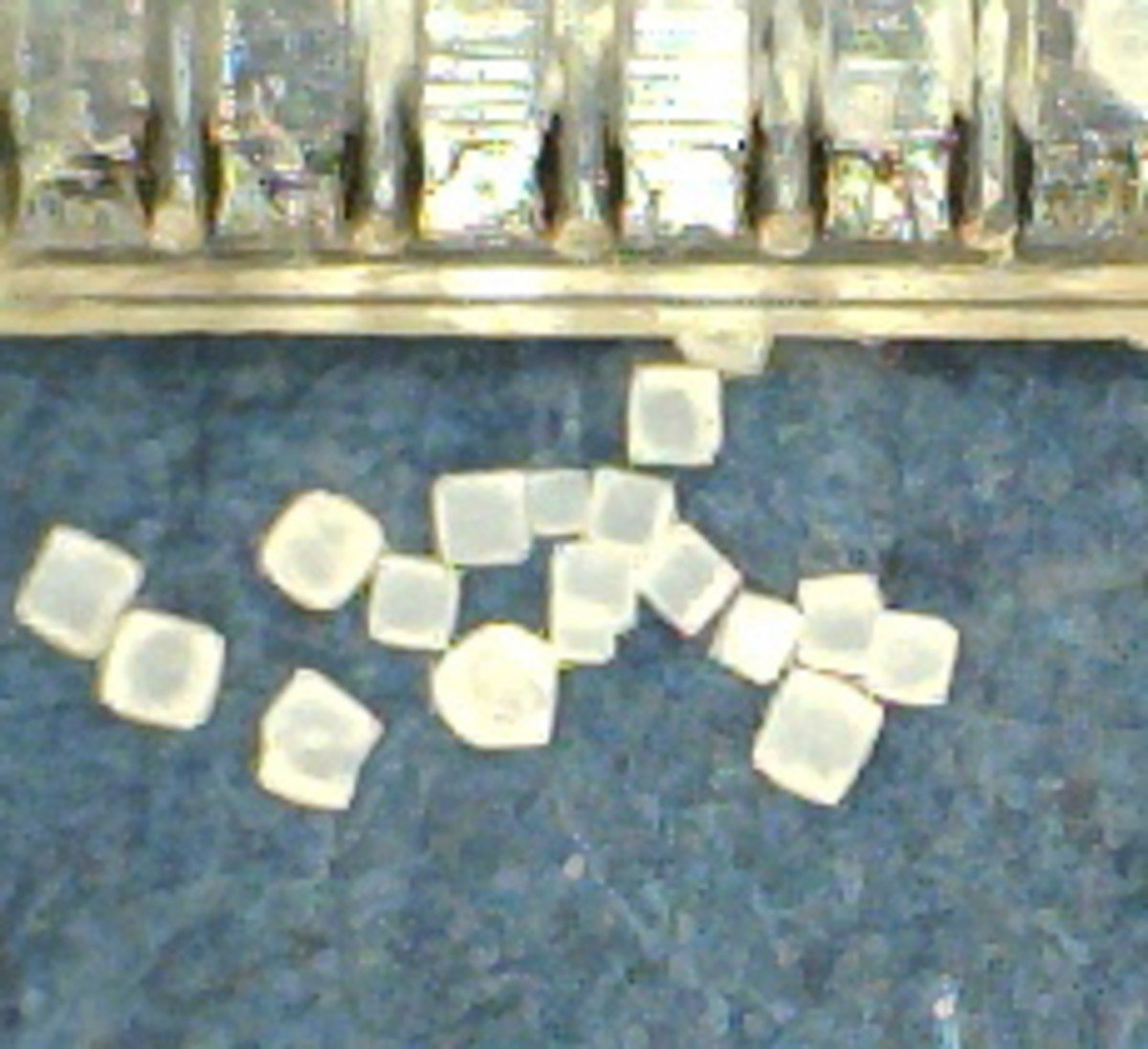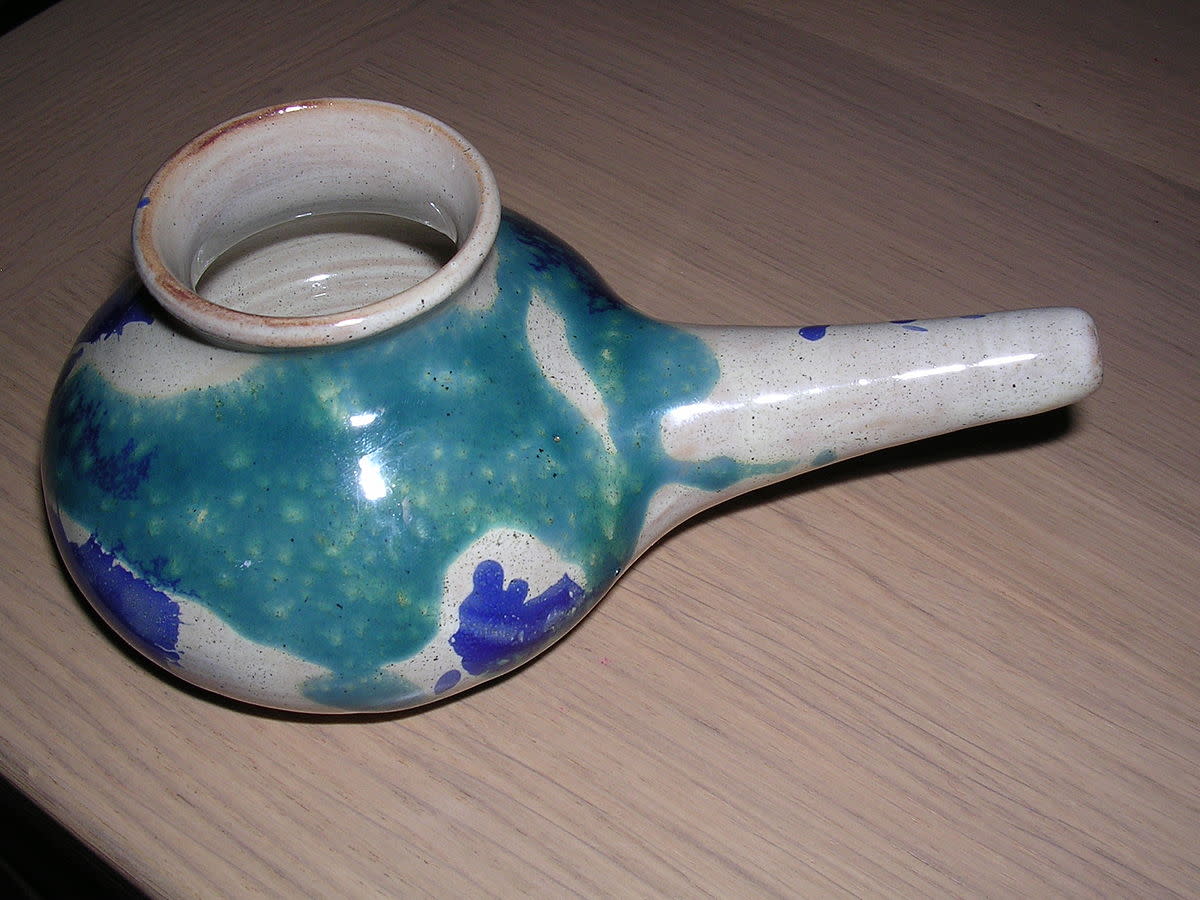The Salt of the Earth is...SALT!
Perhaps the oldest substance known to man,,,Salt
Click thumbnail to view full-size


"How much do I love thee? More than salt!"
Part One...
Through the ages, "common" salt has been imbued with a mystique that goes far beyond its obvious use: a flavoring found on all the world's tables.
The word "Salacious" was developed from the old Roman word, "Salax," which was used to describe a man in love - in a fevered state of emotional and sexual agitation. Sailors in ships overrun with rodents once thought the vermin could breed without sex just by being in the salt carried by the vessel. Many past societies have forbidden salt at times when it was said to increase sexual desire or violent passions.
The connotation is easy to understand for science when it is known that salt is contained in blood, semen, sweat and tears - not to mention urine! Indeed, without the right balance of salt, the human body would wither and die.
Far more than 100 uses of salt are known: some well, some not so well, this account does not intend to list them all. Pickling meat, etc., is one well known use of salt, before refrigeration, adding and rubbing perishable food items with salt was the only way to keep them while traveling. And salt added to hot water helped with sores, sore throats and some skin outbreaks.
In fact, industry in this millennium often cite as many as nearly 15000 uses for salt, without mentioning common use like sprinkling it on chipped potatoes, spreading on winter roads, using in fertilizers and water softening processes - the list would consume an entire HP article and send you all to sleep.
No wonder the French say "I love you more than salt," putting the lady-love on the back-burner in preference to their beloved flavoring.
What is this mineral consumed by the thousands of tons every year by Homo sapiens and sought by other animals when deficient in their diets? Not to mention creating an environment favorable to all the world's fish and other sea creatures.
SALT is the name for the only rock we consume, formed from an unstable metal - sodium - reacting with a highly poisonous gas - chlorine - becoming the stable sodium chloride (NaCI). There are many salts, some edible, others quite nasty, and the familiar sodium chloride with its familiar "salty" taste is the one we value more than any other. Two other salts we commonly use are magnesium chloride and potassium chloride, (the three are found in some baby food for example).
In Ancient Egypt, salt was used in burial ceremonies, creating the infamous "mummies," many of whom survived until the present day. Freud leaped onto the preservation abilities of salt, saying this is why we love the substance so much as it reminds us of long-life and permenance, desirable states in human sub-consciousness. The Jewish race dip the Sabbath bread in salt...the food a gift from God, and the salt, his servants preserving it.
Indian troops pledged their loyalty to the British in salt and all the large ancient empires used salt in offerings and sacrifices to their gods...the origin of Christian Holy Water is said to have been water with salt added. "Sal Sapientia," the Salt of Wisdom, is dispensed by the Catholic Church. The Welsh, not to be outdone in macabre ceremony, have a "Sin Eater" arrive to eat bread and salt from a plate perched on the coffin.
There has also been much ceremony through the ages with the serving of salt at the table. Only to be touched by the tip of a special knife; only handled by the middle two fingers...if a thumb touches the salt, the man's children will die; by his little finger ensures poverty arriving...and by the index finger he will become a murderer. One can guess at the defense used in murder trials back then, "I mistakenly touched the salt with me diget, your honor!"
No one is sure of how much salt a man needs to stay healthy every year although the estimates range from one pound to twenty. Those living in the tropics need more as they loose more in sweating, and those engaged in physical labor everywhere need more for the same reason. Certainly, those who eat lots of red meat need less added, whereas vegetarians must need somewhat more. The Masai, for example, don't add salt to the blood and milk they drink. The huge trade in salt that sprang up from olden times began when cultivated crops took over from diets mainly consuming hunted flesh.
Salt deficiency causes a variety of symptoms resulting in death if salt is not soon consumed, yet we never experience a craving for salt as we do for food and water, when we dehydrate and starve.
Salt is so commonly available at modest prices throughout our shops today, one would find it hard to believe the complexity of the industry and inventiveness that has been required for its obtaining, storing and moving around. Empires have faltered, wars begun, trade routes established, treaties written and forsaken; fortunes made and lost all in the name of this ordinary substance that is found in all the oceans; forms crusts over huge lakes and can be found in deposits quite close to the surface of the Earth - all over it!
Hardly any spot in the planet is without salt nearby, but for millennia salt equated to wealth and it was sought, hoarded and treated something like gold or diamonds. Today, we complain of oil and gas deposits held by despots enriching themselves by its rationing. One hotbed, the Middle East, has been subject to invasion after invasion with the need for oil thinly disguised by other pretexts such as the welfare of the well owner's people. Three hundred years ago, such conflict was common in the search and acquisition of plain old salt.
When you look at a map of North America and follow the minor roads, you may be puzzled as to why they are so haphazard and wander every which way. This is because they are merely improved trails and then secondary roads, the original paths being made by herds and individual animals looking for salt. Human settlements often began where the animals had congregated in flat areas where the earth and rocks contained salt, even licking away over the centuries until huge caverns and pits were created. One familiar to you is named after one huge beast needing a lot of salt, on a plain near Lake Erie...have you guessed? You're sharp! Buffalo, New York.
For centuries before the coming of Europeans, the North American Indian tribes were divided over salt use. As we saw earlier, those who hunted and were almost entirely meat eaters used no salt, while tribes like the Delaware and Hopi ate both meat and crops which they salted. The Zuni would have plied us with dumplings boiled in salty water. Many of these tribes had a salt deity...among these often bizarre beliefs, the Hopi designated one women, the "Salt Woman" with whom the men were encouraged to copulate! She was the squaw with the big smile.
The Aztecs defeated many of their enemies by cutting them off from salt and the Conquistadors soon saw this and took over the salt industries from the people they conquered. There is evidence the great Mayan nation flourished due to their judicious use and monopoly of salt, and some to suggest its eventual demise was in part due to their loss of control of salt. The same story can be found in nation after nation, continent after continent.
Our poets on HP may have heard of an obscure and rather childish form of verse called the Clerihew. It was named after Edmund Clerihew Bently, who actually made his bread as a crime novelist, taking an interest in chemistry, perhaps to add facts regarding poisons to his fiction. While taking a lesson from the great Humphrey Davy, Edmund impulsively penned some doggerel which was to begin the form in literature. Davy, who had isolated sodium, was discussing it's merits impelling Bently to pen :-
"Sir Humphrey Davy
Abominated gravy
He lived in odium
Having discovered sodium."
Apart from the fact sodium is the metal in salt, why and how any of this makes sense is anyone's guess!
(In a correct Clerihew poem there are two couplets, the subject's name making up one rhyming line...why not add some in comments!?).
IN 1807, using electrolysis, Davy isolated the seventh most common element on Earth, sodium. Now people began to understand the composition of salt, a substance the use of which predated Davy by several thousand years...in fact, Stone Age Man might have at least tasted salt after seeing animals licking at the deposits, a habit which must have predated man himself by several millennia.
Salt is still - and ever will be - used in food preparation and preservation. But after heating and canning of foodstuffs became the norm after 1809, salt became much less important to the food industry - and this was a long time before the health hazards of consuming too much salt were well known. It is interesting to note the invention of canned food predated the invention of the can opener by quite some time, forcing users to open the cans with knives which must have caused numerous injuries (as I proved while a boy scout!).
This landmark invention was closely followed by the development of iceboxes, fast-freezing and then refrigeration which dealt a death blow to the use of salt packed meat and fish, etc. When we see Birdseye products today, few realize that it was Clarence Birdseye who established the successful Birdseye Freezing Company in Gloucester, Massachusetts. All this tied-in with the ongoing development of the railroads and soon frozen cod and other food items could be shipped all over the United States and onward from the ports. Mr Birdseye, something of a prophet in his own time, unloaded his company which would shortly become General Foods - just before the Crash of 1929. A great thinker, Birdseye went on to patent some 250 inventions, many to do with food freezing, but as many in diverse fields.
Drilling for rock salt went on after it was discovered huge formations of salt lay under the surface, often at under 1000 feet. The most exciting was at Spindletop in Texas, drilled in 1901, but not because of the salt deposits located there. The impregnable salt rock held huge deposits of another substance, soon to eclipse salt in driller's interests. This, of course, was OIL and then Gas. Spindletop became the launching platform for US Oil, and was to go on itself and produce nearly 150,000,000 barrels of crude over the next 65 years. We now know salt deposits often hold huge reserves of oil and gas, or both, in many countries. American drillers became in demand all over the world to discover new deposits of all three.
I intend to add Part Two to in another article shortly in order to limit the length of Part One of a fascinating history. I hope some find it interesting...

